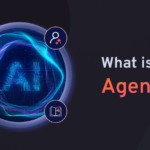
Introduction: Perplexity AI’s Comet Browser and the Changing Face of Work
Perplexity AI Browser Comet The AI industry continues to reshape the modern workplace, and Perplexity AI is leading the charge with its newest innovation. In a bold statement during a recent appearance on The Verge’s Decoder podcast, Perplexity CEO Aravind Srinivas revealed that Comet is far more than another AI chatbot or search tool. Instead, it’s positioned as a fully-fledged AI-powered digital worker—one capable of replacing two key white-collar professions: recruiters and executive assistants.
This announcement comes at a time when AI’s growing role in automation and productivity tools is already causing anxiety across many industries. Srinivas’s comments have reignited debates about whether AI is simply augmenting existing jobs—or if it is actively on a path to eliminate them.
What Is Perplexity AI Browser Comet?
The Perplexity AI Browser Comet isn’t just another AI search assistant like ChatGPT or Copilot. According to Srinivas, Comet is designed to perform continuous, operational work in the background, functioning almost like a silent employee within your tech stack. Its capabilities stretch far beyond traditional AI tools, integrating directly with commonly used applications like Gmail, Google Calendar, LinkedIn, and Google Sheets.
Where most AI tools assist with information retrieval or basic content generation, Comet is built to act autonomously, handling end-to-end workflows for office tasks. These include scheduling, email management, recruitment processes, and more. Srinivas claims this positions Comet as an AI “operating system” for office environments, quietly executing complex tasks from a single prompt.
Perplexity AI Browser Comet vs Traditional AI Assistants
What differentiates Comet from other AI tools is its direct integration with platforms where real work happens—email, calendars, spreadsheets, and professional networks. Instead of relying on a human to input steps one at a time, Comet can autonomously manage full processes.
For Executive Assistants:
Comet can manage schedules, prepare meeting materials, organize tasks, resolve conflicts, and even prioritize communications. Srinivas claims these are precisely the duties that many executive assistants handle daily—duties Comet can now automate through simple prompts.
For Recruiters:
Recruitment professionals may find Comet particularly disruptive. It can source candidates from LinkedIn, extract contact details, draft outreach emails, follow up with responses, update candidate tracking sheets, and provide pre-meeting briefings—all actions that recruiters typically spend countless hours managing.
Srinivas confidently stated: “A recruiter’s week of work can now be reduced to a single prompt.”
AI’s Growing Impact on White-Collar Work
While Perplexity AI Browser Comet might sound like science fiction, it aligns with a broader shift already underway. Several tech leaders have voiced concerns and predictions about the future of AI in white-collar environments:
- Dario Amodei, CEO of Anthropic, predicts up to 50% of entry-level office jobs could disappear within five years.
- Ford CEO Jim Farley echoed this concern, suggesting half of white-collar roles in the U.S. are under threat.
- Amazon CEO Andy Jassy has urged employees to quickly adapt to AI or risk redundancy.
- Nvidia’s Jensen Huang takes a more optimistic view, arguing AI will evolve existing roles rather than destroy them outright.
- Salesforce’s Marc Benioff emphasizes AI as a tool for augmentation, not elimination.
Regardless of perspective, the common theme is clear: AI is rapidly blurring the lines between human and machine labor.
The Rise of AI-Native Browsers: Why Comet Matters
While companies like OpenAI push forward with AI agents capable of operating virtual computers autonomously, Perplexity’s Comet browser offers a glimpse into AI’s next frontier—an AI browser that doesn’t just answer queries but works like a human behind the scenes.
By integrating with tools professionals already use, Comet functions more like an invisible team member than a passive assistant. The AI doesn’t merely suggest solutions—it acts, executing tasks that previously required human involvement.
This makes Perplexity AI Browser Comet a potential game-changer for productivity software and a clear signal that AI’s future lies in automation of not just information retrieval but operational execution.
Cut the Doomscrolling: A Message from Aravind Srinivas
Beyond the immediate implications for jobs, Aravind Srinivas offered advice for workers concerned about AI’s impact. In an interview with Matthew Berman, Srinivas emphasized the growing divide between those who master AI tools and those who don’t.
“People who are at the frontier of using AIs will be far more employable than people who aren’t. That’s guaranteed to happen.”
He warned against wasting time doomscrolling on platforms like Instagram, instead encouraging individuals to invest time in learning AI tools like Comet—not necessarily to help their employer, but to secure their own future in an evolving digital economy.
Srinivas acknowledged that AI’s rapid advancements, which arrive seemingly every three to six months, can feel overwhelming. However, he believes adaptation, not fear, will determine who thrives in the AI-powered workplace.
Perplexity AI Browser Comet and the Bigger Picture
AI Is Reshaping Work—But Not Everyone Agrees on How
While Srinivas’s claims about Comet are bold, they aren’t universally accepted. Critics argue that AI will create as many jobs as it eliminates, with new opportunities arising in AI management, ethics, and oversight.
Others, however, fear the pace of AI adoption outstrips society’s ability to retrain displaced workers. The uncertainty leaves many wondering whether tools like Comet will enhance productivity—or lead to mass layoffs in sectors like HR and administration.
What’s undeniable is that AI tools are growing more capable of handling nuanced, multi-step tasks—the kind previously considered safe from automation.
What’s Next for Perplexity AI Browser Comet?
Currently, Comet is available only through invite-only access to premium users. But its long-term vision is clear: to become the AI operating system for office work. This means integrating more deeply with enterprise tools and expanding its scope beyond recruiting and scheduling to cover wider business operations.
The success of Comet could set a precedent for future AI-native browsers, pushing traditional software companies to rethink how they structure tools for productivity, collaboration, and automation.
Final Thoughts: Prepare for the Future of Work with AI
Whether Perplexity AI Browser Comet will fully replace recruiters and executive assistants remains to be seen. However, the direction is undeniable: AI is already reducing the human workload in areas once considered irreplaceable.
For individuals in these professions—or any white-collar role—it’s crucial to adapt, upskill, and learn how to work alongside AI tools. Those who embrace AI will likely find new opportunities in managing, optimizing, and innovating with these technologies. Those who resist may find themselves left behind as automation advances.
As Comet and similar AI innovations continue to evolve, the workplace itself will undergo one of the most significant transformations of the digital era. Whether this shift leads to widespread displacement or a new renaissance of productivity depends largely on how individuals and organizations choose to respond.
Conclusion: Perplexity AI Browser Comet Is More Than a Browser—It’s a Wake-Up Call
The arrival of Perplexity AI Browser Comet underscores a larger truth: AI isn’t coming for jobs in the future—it’s already here, transforming how we work today. For recruiters, executive assistants, and countless other office workers, the writing on the wall is clear. Adapt to AI or risk being replaced by it.
As Srinivas advised:
Stop doomscrolling. Start learning. The future belongs to those who embrace the tools shaping it.









1 thought on “Perplexity AI Browser Comet: The AI Tool That Could Replace Recruiters and Executive Assistants”